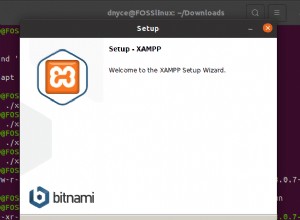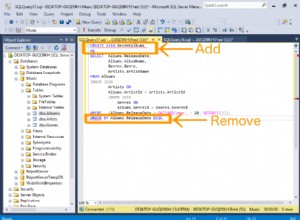Acabei resolvendo o problema construindo e executando uma consulta SQL bruta para fazer o autoincremento e a inserção em uma única transação de banco de dados. Passei muito tempo examinando o código-fonte do Django para entender como funciona o método de salvamento de modelo padrão para que eu pudesse fazer isso da maneira mais robusta possível. No entanto, espero que isso precise ser modificado para back-ends não MySQL.
Primeiro, criei uma classe abstrata da qual o ObjectLog agora derivará, que apresenta este novo método de salvamento:
class AutoIncrementModel(models.Model):
"""
An abstract class used as a base for classes which need the
autoincrementing save method described below.
"""
class Meta:
abstract = True
def save(self, auto_field, auto_fk, *args, **kwargs):
"""
Arguments:
auto_field: name of field which acts as an autoincrement field.
auto_fk: name of ForeignKey to which the auto_field is relative.
"""
# Do normal save if this is not an insert (i.e., the instance has a
# primary key already).
meta = self.__class__._meta
pk_set = self._get_pk_val(meta) is not None
if pk_set:
super(ObjectLog, self).save(*args, **kwargs)
return
# Otherwise, we'll generate some raw SQL to do the
# insert and auto-increment.
# Get model fields, except for primary key field.
fields = meta.local_concrete_fields
if not pk_set:
fields = [f for f in fields if not
isinstance(f, models.fields.AutoField)]
# Setup for generating base SQL query for doing an INSERT.
query = models.sql.InsertQuery(self.__class__._base_manager.model)
query.insert_values(fields, objs=[self])
compiler = query.get_compiler(using=self.__class__._base_manager.db)
compiler.return_id = meta.has_auto_field and not pk_set
fk_name = meta.get_field(auto_fk).column
with compiler.connection.cursor() as cursor:
# Get base SQL query as string.
for sql, params in compiler.as_sql():
# compiler.as_sql() looks like:
# INSERT INTO `table_objectlog` VALUES (%s,...,%s)
# We modify this to do:
# INSERT INTO `table_objectlog` SELECT %s,...,%s FROM
# `table_objectlog` WHERE `object_id`=id
# NOTE: it's unlikely that the following will generate
# a functional database query for non-MySQL backends.
# Replace VALUES (%s, %s, ..., %s) with
# SELECT %s, %s, ..., %s
sql = re.sub(r"VALUES \((.*)\)", r"SELECT \1", sql)
# Add table to SELECT from and ForeignKey id corresponding to
# our autoincrement field.
sql += " FROM `{tbl_name}` WHERE `{fk_name}`={fk_id}".format(
tbl_name=meta.db_table,
fk_name=fk_name,
fk_id=getattr(self, fk_name)
)
# Get index corresponding to auto_field.
af_idx = [f.name for f in fields].index(auto_field)
# Put this directly in the SQL. If we use parameter
# substitution with cursor.execute, it gets quoted
# as a literal, which causes the SQL command to fail.
# We shouldn't have issues with SQL injection because
# auto_field should never be a user-defined parameter.
del params[af_idx]
sql = re.sub(r"((%s, ){{{0}}})%s".format(af_idx),
r"\1IFNULL(MAX({af}),0)+1", sql, 1).format(af=auto_field)
# IFNULL(MAX({af}),0)+1 is the autoincrement SQL command,
# {af} is substituted as the column name.
# Execute SQL command.
cursor.execute(sql, params)
# Get primary key from database and set it in memory.
if compiler.connection.features.can_return_id_from_insert:
id = compiler.connection.ops.fetch_returned_insert_id(cursor)
else:
id = compiler.connection.ops.last_insert_id(cursor,
meta.db_table, meta.pk.column)
self._set_pk_val(id)
# Refresh object in memory in order to get auto_field value.
self.refresh_from_db()
Em seguida, o modelo ObjectLog usa isso como:
class ObjectLog(AutoIncrementModel):
class Meta:
ordering = ['-created','-N']
unique_together = ("object","N")
object = models.ForeignKey(Object, null=False)
created = models.DateTimeField(auto_now_add=True)
issuer = models.ForeignKey(User)
N = models.IntegerField(null=False)
def save(self, *args, **kwargs):
# Set up to call save method of the base class (AutoIncrementModel)
kwargs.update({'auto_field': 'N', 'auto_fk': 'event'})
super(EventLog, self).save(*args, **kwargs)
Isso permite que as chamadas para ObjectLog.save() ainda funcionem conforme o esperado.




